- July 26, 2024
-
-
Loading

Loading
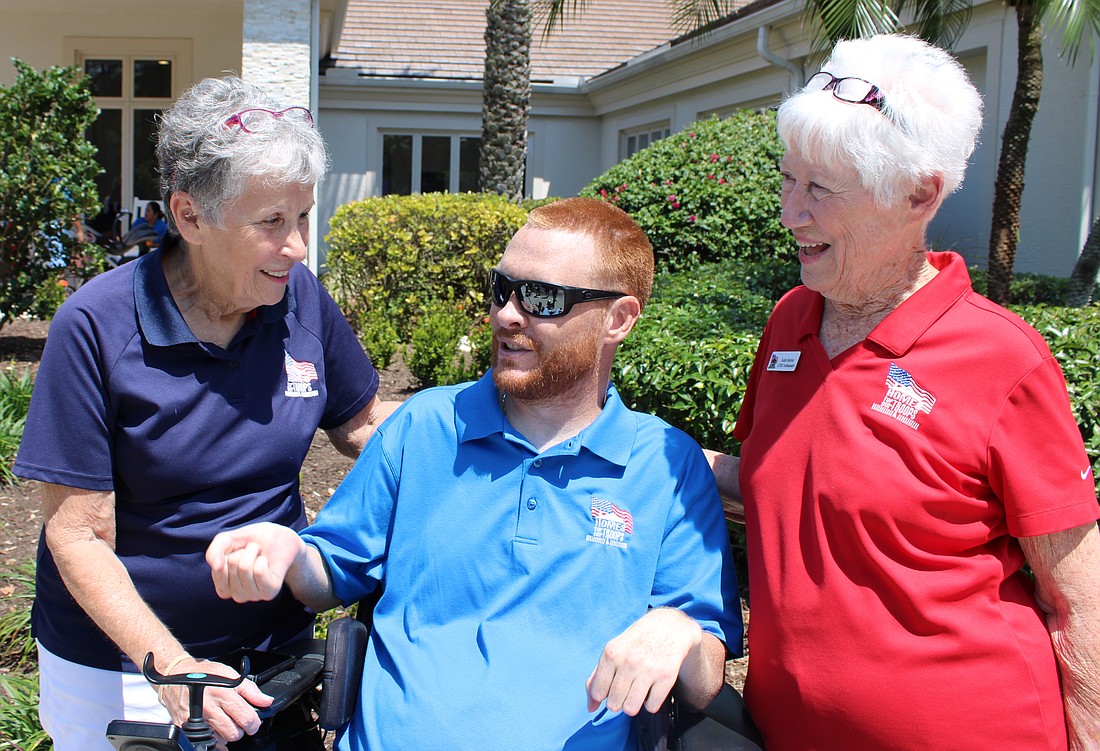
After moving to Florida from his home of Philadelphia, Russell "Rusty" Carter talked about finding that the environment was "amazing" for disabled veterans.
A quadriplegic, he had plenty of quality care and great parks that were friendly to someone in a wheelchair.
What he didn't have were family and friends.
Then he met Deb Kehoe and Kathi Skelton.
Kehoe and Skelton have organized and run the Rosedale Golf Classic since 2013 to support Homes for Our Troops, a nonprofit that builds adaptive homes for disabled veterans. The two seniors have led an effort that has led to more than $1.5 million to Homes for Our Troops.
Carter was in line for an adaptive home and was chosen as the Rosedale Golf Classic's recipient in 2024.
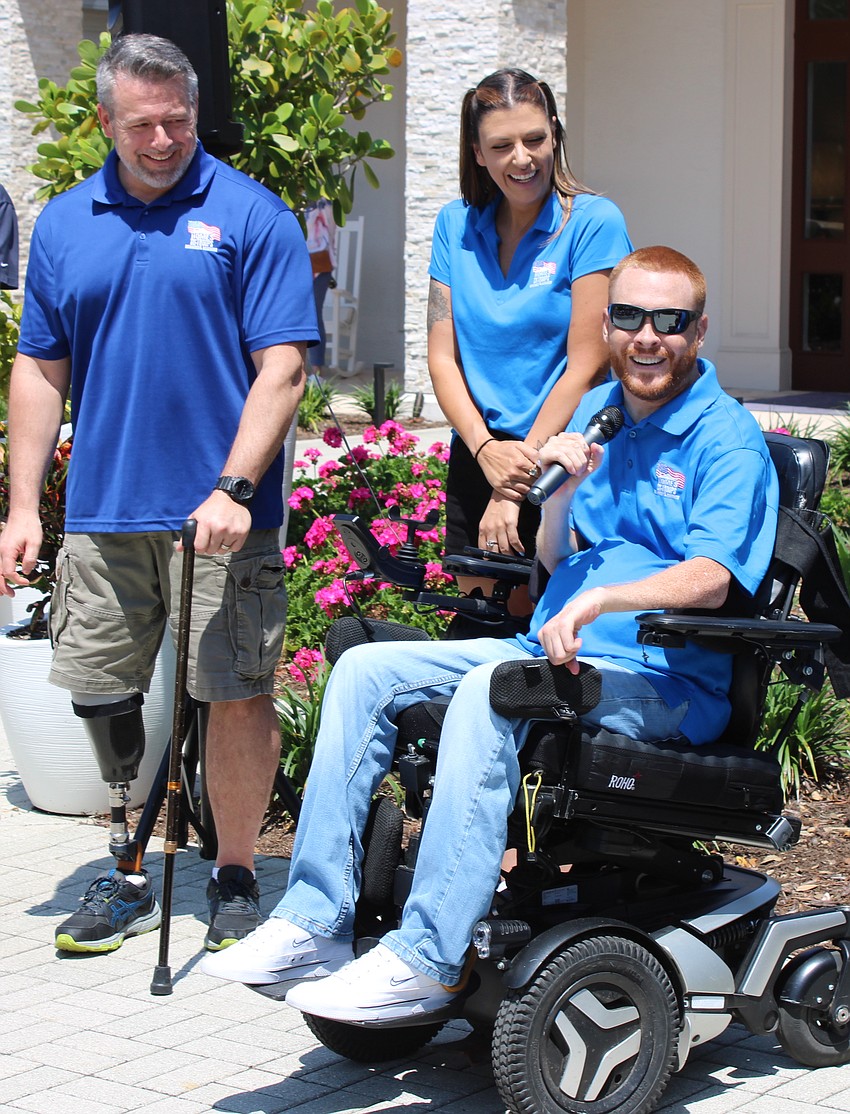
"I have only met them three times face-to-face, but they are amazing," Carter said of Kehoe and Skelton. "Both of my grandmothers have passed away, but they are my grandmothers now. The love I feel for them is nothing short of family, and this relationship will last forever. They have no ulterior motive in doing this, and that has not also been the case with groups that I have met that say they want to help veterans. They are genuine."
Both Skelton and Kehoe loved hearing Carter's words, and every year their fundraising effort has forged another amazing relationship with a veteran they assist. They follow the veteran's move into a new home and follow the achievements afterward.
"They all lead productive lives, and they all bring something different," Skelton said.
Carter, who will move into his adaptive home in Lithia this summer, said his new mortgage-free home will open many opportunities for him. He currently is paying $3,200 a month in his Tampa apartment, which leaves him with little money to pursue his interests.
"I want to start a small business," he said. "Maybe a not-for-profit. I want to help people with disabilities to travel and find places that are more accessible for them. I also would like to consult with restaurants and hotels and talk with them about being more accessible for those in a wheelchair."
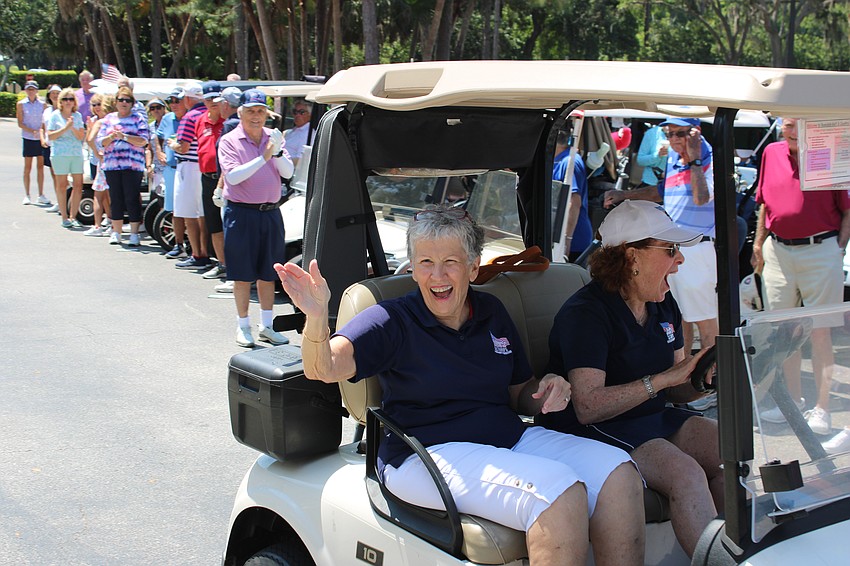
The Rosedale Golf Classic raised a record $191,000 in 2023, a benchmark Kehoe and Skelton thought would be hard to beat. But 2024 raised the bar to an incredibly high level, that might well be untouchable in the future. They raised $422,051, that included $205,000 in donations from Marty Roth of San Luis Obispo, California. Roth had a friend who was a former Rosedale resident, and he wanted to find out more about Homes for Our Troops so he went to a "key ceremony" in California where the nonprofit presented an adaptive home to a disabled veteran. Roth told Kehoe and Skelton that "it changed my life."
He began making donations to the Rosedale Golf Classic and this year made the major donations through his late wife's foundation, the Julie Roth Foundation.
That huge donation could well make the Rosedale Golf Classic the No.1 event in the nation for Homes for Our Troops. The tournament has been the No. 2 fundraiser in the nation several times.
The tournament also received a $50,000 donation from the Tampa Bay Lightning Foundation in Carter's name.
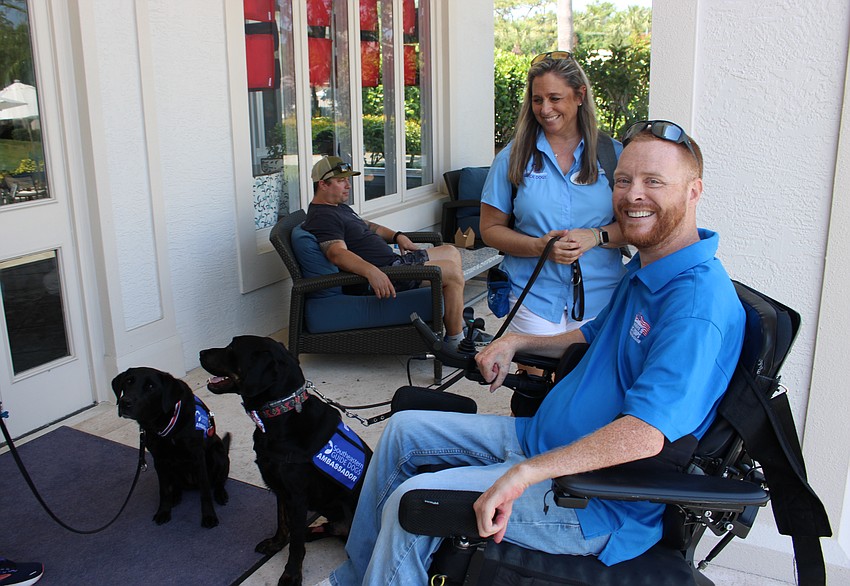
Carter's story is a horrific one, although he chooses to take as positive an outlook as possible. It happened Jan. 2, 2011 as Carter rode in a 13 1/2-ton MRAP truck. The truck was a specially designed vehicle built to resist improvised explosive devices that would explode up from below the military vehicles. The MRAPs were designed with extra reinforcement under the vehicles and V-shaped hulls to protect the soldiers.
In Carter's case, he was one of seven soldiers riding in the MRAP, which was going over a bridge when its tie-rod snapped, disabling the steering. The vehicle went off the bridge and down the side of a mountain. While the other six soldiers were able to recover from their injuries, Carter, a sergeant, broke his neck (C4, C5-6) and was left unable to move his arms or legs.
"I don't remember waking up," he said. "I know I was flown to Germany for emergency surgery. I was there seven days, then I was flown to Walter Reed National Military Medical Center (Bethesda, Maryland). When I woke up, I thought I had been captured. They told me I wouldn't be able to move my arms the rest of my life and that I would be on a ventilator.
"But in two months I got some movement in my arms. In seven months I could move my wrists."
An avid pool player, he thought those days were over. But two years after his injury, he could position a pool cue on his shoulder and use his hands to play. After the Rosedale Golf Classic, he was planning to go to Las Vegas to play in a tournament, not against other disabled players, but against all players.
He chooses to look forward, not back at the day he was injured.
"I look at it as the day I survived," he said before the Rosedale Golf Classic. "I look at it as being more positive. I am not about what happened to me. I am about what I choose to become."
He said his Lithia home will help him forge a successful future.
"In the morning, it takes me two hours to get ready in my apartment," he said. "In this home, I will have a ceiling lift to get out of bed. I don't have a roll-n shower now, but I will have in my home, that is massive. I will be able to go in and out of rooms with door openers. Just the peace of mind is huge. I will be able to accomplish things I never imagined in terms of being independent. I will be able to do things I never have dreamed of being able to do."
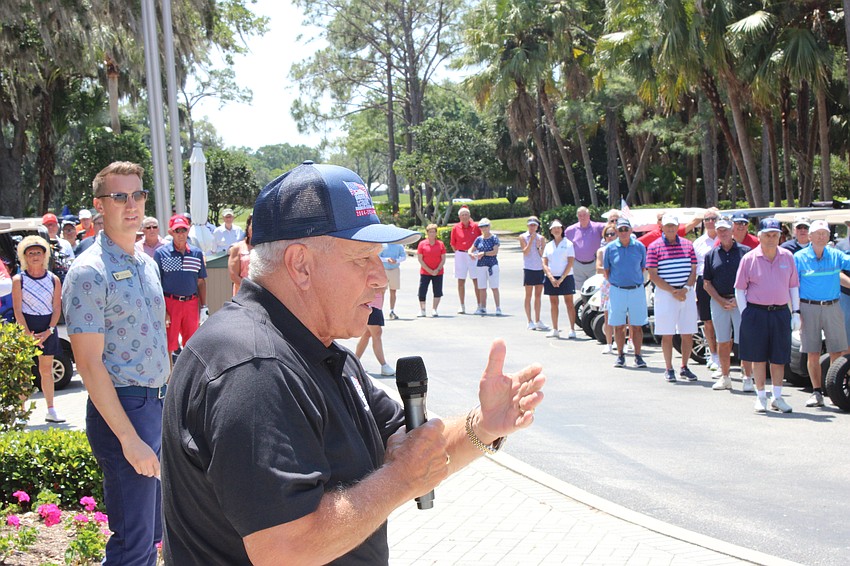
Gen. Richard Cody, the Homes for Our Troops' chairman of the board, came to the Rosedale Golf Classic for the first time to celebrate the fundraising effort with Skelton, Kehoe and the community. Half the players in the Rosedale Golf Classic are Rosedale residents and the remaining are mostly members of the surrounding Lakewood Ranch-area community.
"You don't have to look farther than Rosedale to see great American patriots," Cody said. "We do a lot of these fundraisers, but the way this community looks up to, and gets together with, the soldiers is special. It's real here. We have Americans from all walks of life here linked up with these veterans. It invigorates patriotism. And Deb and Kathi ... their energy is infectious. I think they were sergeant majors in another life."
Homes for Our Troops currently has 77 projects being built across the nation. The nonprofit has turned over 377 home to veterans, a number that will increase to 400 before the end of the year. Homes for Our Troops has built 34 homes in Florida.
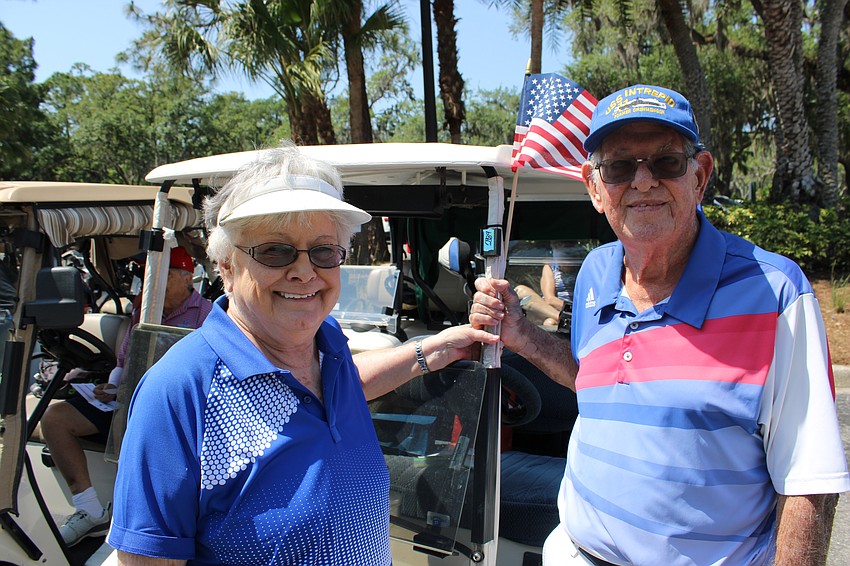
Joyce Matthews and her husband, Mike Matthews, always support the event. Joyce Matthews said she loves the fundraiser because she can see her money at work."
Tournament sponsor Steve Shaw of Hotwire Communications said, "It is remarkable what (Kehoe and Skelton) do. It is somewhat of a throwback to what is good about America."
While it was the 11th golf tournament, it was the 12th year of the fundraising effort (the first year no golf tournament was held). The tournament now has raised more than $1.5 million for Homes for Our Troops. Twenty volunteers helped with the effort this year and Skelton said she can't say enough about them.
The first year, $4,000 was raised, and the second year — the first for the golf tournament — $11,500 was raised.
It costs approximately $1 million to build an adaptive home.
Carter was overwhelmed the community's generosity.
"My emotions are starting to come back," he said. "Now I can be genuinely happy."